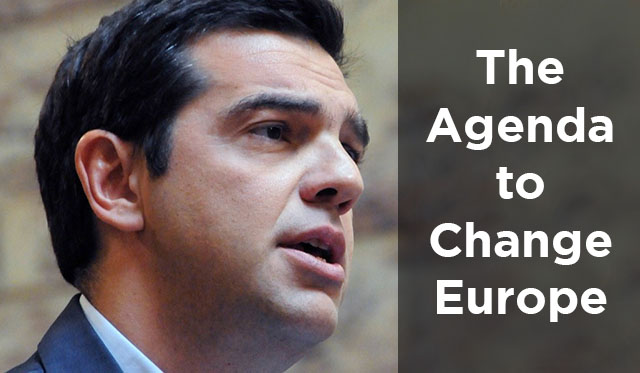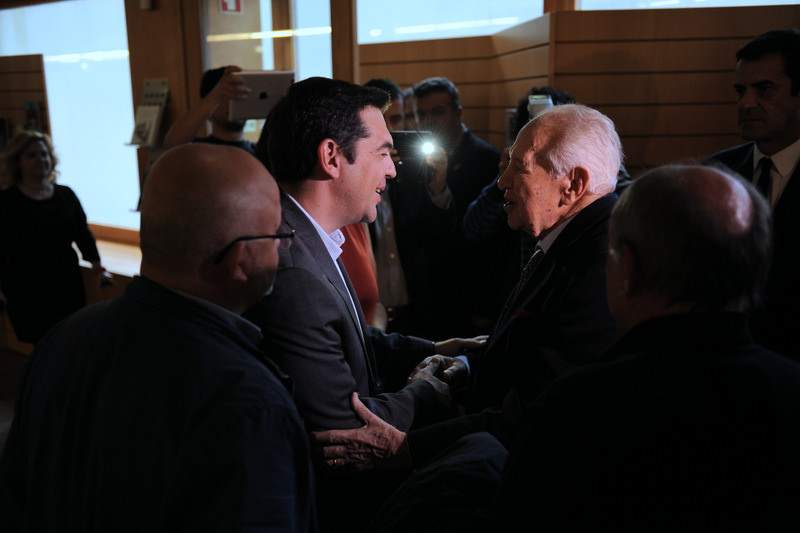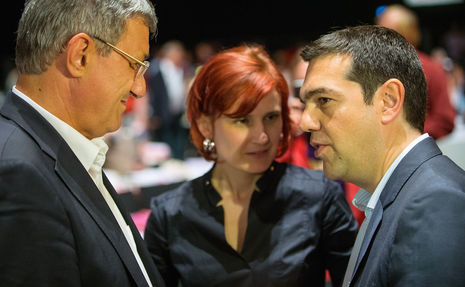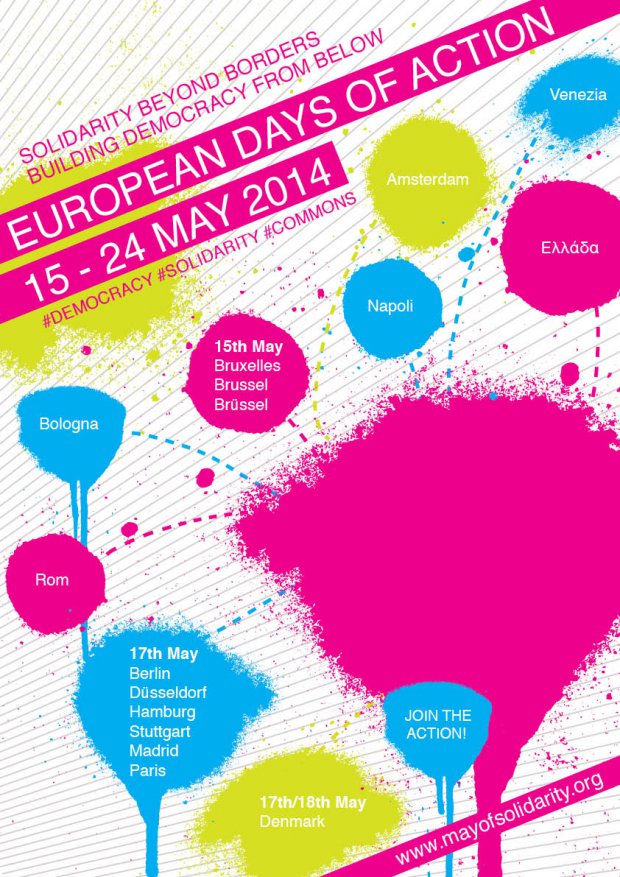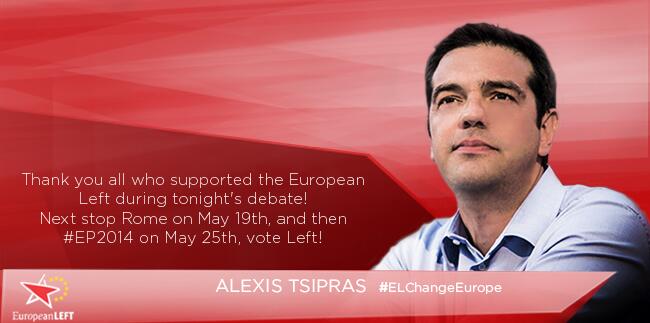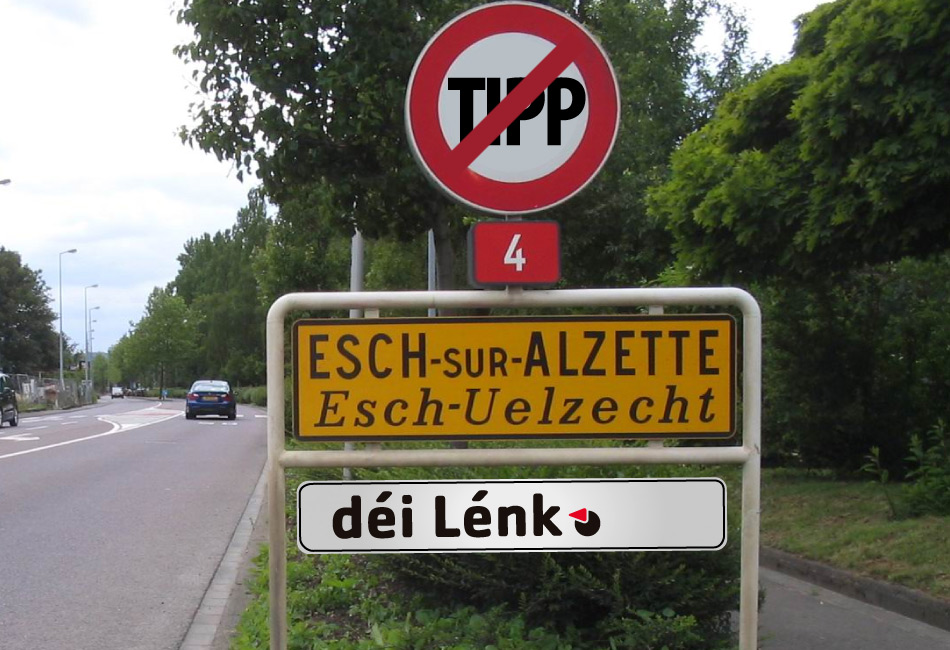- Details
-
Category: #EP2014
-
Published: Sunday, 18 May 2014 12:41

by Etienne Balibar / Translated from the French edition by George Miller
Europe is dead. Or is it long live Europe? Some believe the threat of paralysis and dissolution remains; others optimistically seize any small positive sign as a reason to announce (yet again) that Europe’s crises can serve as a springboard. But what is lacking is a deeper sense of history, which would help us understand the current crisis as a turning point in a process that has lasted over 50 years.
The European project has gone through several distinct phases that are closely linked to transformations in the world system. The first was from the creation of the European Coal and Steel Community (ECSC) in 1951 to the aftermath of the 1968 events and the oil crisis. The next phase went from the early 1970s to the fall of the Soviet system and German reunification in 1990. And the last was from the eastern enlargement of the European Union to the crisis sparked by the bursting of the US speculative housing bubble in 2007 and Greece’s sovereign debt default, averted in extremis in 2010.
It would be mistaken, though, to see the development of the European project as linear and the speed at which it progresses the only variable. Each phase has involved a conflict between several possible paths.
The initial post-1945 phase can be seen in the context of the cold war, but also of western Europe’s industrial reconstruction and the creation of social security systems. This phase included a pronounced tension between Europe’s absorption into the US sphere of influence and the quest for a geopolitical and geo-economic renaissance of its own. The latter prevailed, within a capitalist framework of course.
The same goes for the most recent phase, with the opposite result — not to the advantage of (now declining) American hegemony, but assimilation by globalised finance capitalism. Here, Germany played the decisive role: the support of Chancellor Gerhard Schröder (1998-2005) for industrial competitiveness through low wages was critical.
But the crucial issue is understanding how choices operated and power relations changed in the middle period of the Franco-German condominium and the Delors Commissions (1985-94). In this period, two supranational developments intended to be the twin pillars of the “great market” were proposed — the creation of a single currency and “social Europe”. As we know, the euro became the EU’s central institution (even if not all states signed up to it) and social Europe was restricted to formal employment legislation. This turnaround would merit a detailed history in its own right, to explore not only individual responsibilities but objective political causes. These include, along with neoliberal pressure, the European trade union movement’s inability to influence EU decisions, due to its member organisations’ provincialism as much as to the imbalance of power. Meanwhile businesses continued to relocate outside the EU — an important lesson for the future.
The European project always presents alternatives. But grasping them depends on forces or plans that are not always on the table.
Let us turn to the economy, including its social and political dimensions. If, as is generally accepted, no policy can be defined independently of economic constraints, it is conversely the case that there is no economy that is not also an amalgam of (collective) decisions and the product of power relations.
From the late 19th century, class struggles and social policies had given the working classes a standard of living above the minimum defined by “free and fair competition”, which presumed certain limits to social inequalities. Today, in the name of competitiveness and the control of public debt, we are seeing a two-pronged movement in the opposite direction. Real income from labour has been squeezed, and made precarious, in pursuit of competitiveness, while mass consumption has continued to grow, fed by workers’ spending power or their capacity to take on debt. It’s conceivable that “zoning” strategies and social or generational differentiation could delay the moment when the contradiction between these incompatible objectives explodes. But in the end, it can only get worse, as can the systemic dangers of a debt-based economy.
European integration that pursues an almost constitutional neoliberal path has produced another effect that undermines its own political and moral conditions. The possibility of overcoming historical antagonisms within a post-national structure with shared sovereignty presupposed moving towards the convergence of states in three domains: synergy of their capabilities, resource sharing and mutual recognition of rights. Yet, the triumph of the competition principle has created growing inequalities. Instead of joint development in Europe’s regions, we are witnessing a polarisation, which the crisis has made much worse. There is increasingly unequal distribution of industrial capacity, jobs, opportunities and education networks — to the extent that it could be said, looking at the Europe-wide trend since 1945, that a major North-South divide has replaced an East-West one, even if this disjunction does not take the form of a wall, but a one-way drain on resources.
What place does Germany occupy in this system rooted in unequal development? It was predictable that reunification after half a century would bring a resurgence of nationalism, and that the reconstitution of Mitteleuropain which German companies have profited to the maximum from a “low-wage, hi-tech” labour force (1), would give them a competitive advantage over other European nations. But it was not inevitable that these two factors would produce a political hegemony (even a “reluctant” one, as the current formula goes (2)).
It results from the pivotal position Germany has managed to occupy, between exploiting European economic resources, or even their weaknesses (as is the case with German borrowing at negative interest rates on the financial markets, compensated for by the high rates other European countries pay), and German industries’ specialisation in exporting outside Europe. And so for now Germany finds itself at the sweet spot where the national advantages of unequal development are concentrated — all the more so since it is less committed than other countries (notably France) to neoliberal financialisation (3).
But the impression of hegemony has other causes, ranging from the absence of EU mechanisms for developing “communitarian” economic policies collectively to the foolishness of other governments’ defensiveness (notably the French, who rule out alternative formulas for developing supranational institutions). Finally, this impression of hegemony is now one of the factors that divide the “Europe of the rich” and the “Europe of the poor” — a structural impediment to the European project. There is likely to be a “German question” in Europe for a long time to come.
Yet the current situation contains a paradox for neoliberals. At the moment when there are hints of downturns and even IMF economists are themselves criticising austerity — for creating recession and worsening the insolvency of indebted countries — it seems that Europe, as an economic unit, is among the least well-placed parts of the world when it comes to stimulating fresh activity. There is no simple explanation for this, but some ideological reasons can be advanced.
Some relate to the projection onto the single currency of the “ordoliberal” model of an absolutely independent European Central Bank (ECB) in relation to the aims of “real” economic policy. Others relate to the European ruling classes’ bad conscience: having had to concede more than others to Keynesian public policy, they perceive fresh demand-driven economic growth, which comes through improved working-class living standards, as a grave danger, risking relapsing into the logic of “social” capitalism.
Finally, I think that another, more sinister, kind of calculation cannot be discounted, shown by the stubbornness with which the dismantling and colonisation of the Greek economy have been pursued under the pretext of “structural reforms”. The idea here is that, however injurious the results of austerity and monetarism to general prosperity, they at least lead to increased profitability for some investors (or some capital): those who, whether European or not, are already largely “deterritorialised” and can instantly relocate their activities. Clearly, this calculation is only politically viable as long as “creative destruction” does not significantly affect the social fabric and the cohesion of dominant nations, which is not guaranteed.
Applied to Europe, the neoliberal project does not lead to the transformation of its object: it tends towards its disappearance.
The European project has reached a turning point, which contains the possibility of a new phase, pointing in directions that are radically and mutually incompatible. But neither the crystallisation of the conflict nor its evolution can take place outside a political space of confrontation and representation. In short, they depend on the way in which the twin problems of legitimacy and democracy are resolved. This is the third dimension I want to emphasise.
How can it be tackled realistically?
First of all, we have to move beyond the opposition between “sovereignist” and “federalist” discourse, which is based on two imaginary situations. On one hand, we have the idea of national communities as in some way natural and the source of institutional legitimacy derived from the expression of popular will. And on the other, we have the idea of a virtual European demos, in a sense called upon to constitute and express itself as a result of there being a representative structure at supranational level.
The first idea supports the fiction that the nation-state possesses unvarying legitimacy and is the only framework within which citizens can realise their rights. The second restricts itself to a procedural conception of legitimacy. It is necessary to recognise the fact that the European political system, however incoherent it may seem, is now a mixed system with several levels of responsibility and authority. It is far more federal than most citizens realise, but less democratic than it claims, since the division of powers among community and national institutions allows each of them to make unaccountability structural and block the creation of counter-balances.
This system has never been stable. But the current crisis has further destabilised it by causing the rise of a quasi-sovereign institution in its midst: the “independent” Central Bank, located at the intersection of states’ financial institutions and the international financial market. Its increased power is not just a technocratic development or the result of the control of private capitalism. It is rather an attempt at “revolution from above” at a time when political power is no longer separate from economic, especially financial, power (4). The key question is whether it could lead to a new system of sovereignty, and what alternatives can counter it.
From this stems a second confusion, worth dispelling, about the links between legitimacy and democracy. If we stick to a realist, rather than ideological definition, we cannot claim that democratic processes confer the only effective form of legitimacy: all of history suggests otherwise. It is in so-called exceptional situations that authoritarian structures tend to claim and obtain power over populations, with or without constitutional procedures. But what is striking is that the urgency of fending off speculative attacks against the single currency and partially regulating a financial system has brought the European Commission no new legitimacy. Faced with the “extraordinary” measures by the ECB and its president, governments and heads of state have been able to present themselves as sole embodiments of popular sovereignty and people’s rights of self-determination. Democracy has been undermined on both sides at once, and the political system as a whole has taken a step towards de-democratisation.
This state of affairs requires us to look back at the historical causes of nation-states’ privileged position as far as the legitimation of power is concerned. Some of these causes derive from the affective power of national or nationalist ideology in societies which forged their collective conscience through resistance to waves of imperialism. But with hindsight, another factor has acquired strategic significance: the fact that — especially in western European countries — the transformation of the police state into the social state took the form of the construction of a national social state, in which winning social rights was closely linked to the periodic reconstruction of a sense of national belonging. This explains both why the mass of citizens saw the nation as the only context for the recognition of and integration into the community, and why this civic dimension of nationality is eroded (or degenerates into xenophobic “populism”) when the state begins to function in reality, not as an enabling structure for social citizenship, but as the powerless witness to its degradation or enthusiastic agent of its dismantling.
So the crisis of democratic legitimacy in contemporary Europe comes both from the fact that nation states no longer have the means or the will to defend or renew the “social contract”, and that EU institutions are not predisposed to seek the forms and contents of a social citizenship at a higher level — unless (eventually) pushed to do so by popular insurrection, or by becoming conscious of the political and moral dangers which Europe runs, through the conjunction of dictatorship exercised “from above” by financial markets, and an anti-political discontent fed from below by the precariousness of living conditions, contempt for labour and the destruction of hopes for the future.
But however hard times are and however bitter the missed opportunities, we must hope that pessimism, resulting from experience, will not destroy our imagination entirely — which also results from a better awareness of the facts. The introduction of democratic elements into the EU’s institutions would already provide a counterweight to the “conservative revolution” which is under way (5). But it does not deliver its own political conditions. Those will not come except through a simultaneous push from public opinion for revised EU priorities, with an emphasis on employment, integrating young people into society, the reduction of inequalities and equitable sharing of the taxation of financial profits. And this push will not come unless social movements or moral “indignation” cross borders, and gather sufficient strength to rebuild a dialectic of power and opposition across the whole of European society. “Counter-democracy” must come to the aid of democracy (6).
The legitimacy of the European project cannot be decreed, or even invented, through legal argument. It can only result from Europe becoming the framework for social, ideological, passionate conflicts about its own future — in short, political ones. Paradoxically, it is when Europe is contested, even with violence, not in the name of the past (which has been relegated) but in the name of the present and of the future (which it can control), that it will become a sustainable political construction. A Europe capable of governing itself is undoubtedly a democratic rather than oligarchic or technocratic one. But a democratic Europe is not the expression of an abstract demos. It is a Europe in which popular struggles proliferate and block the removal of decision-making power.
Resisting de-democratisation is not a sufficient condition for crystallising a historic leadership, but it is a necessary condition to “remake Europe”.
Europe’s current crisis — genuinely existential, because it presents its citizens with radical choices and ultimately the question “to be or not to be” — was probably prepared by the systematic imbalance of its institutions and powers, to the detriment of people’s ability to take part in their own history. But what precipitated all this is that Europe began deliberately to function, not as a space of solidarity among its members and of initiatives to confront globalisation, but as an instrument of penetration for global competition within the European arena — ruling out transfer between territories and discouraging common enterprise, rejecting all harmonisation of rights and standards of living “from above”, and making each state a potential predator on its neighbours.
Clearly it is not possible to escape this self-destructive spiral by replacing one form of competition with another — by substituting tax regimes and interest rate competition through devaluation for wage competition, for example, as has been advocated by some supporters of a return to national currencies (7). We can only escape it by inventing and continuing to propose another Europe than that of the bankers, technocrats and rentier politicians. A Europe of struggle between antithetical models of society, and not between nations in search of their lost identities. An altermondialist Europe, capable of inventing its own revolutionary development strategies and enlarged forms of collective participation, and proposing them to the world — but also of taking on board and adapting ideas which originate elsewhere. A Europe of peoples — of the people and citizens who make it up.




